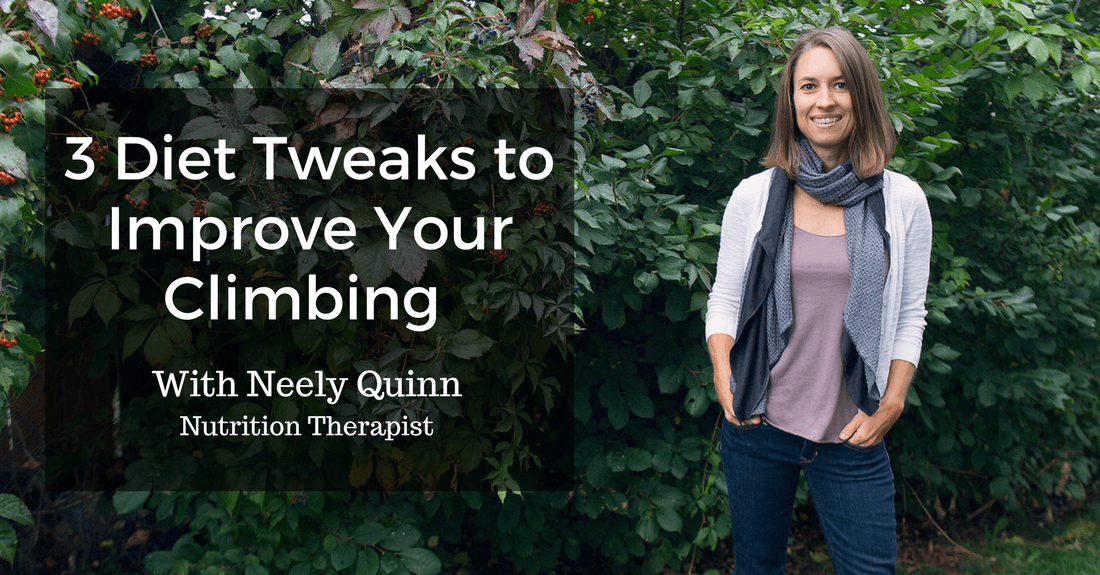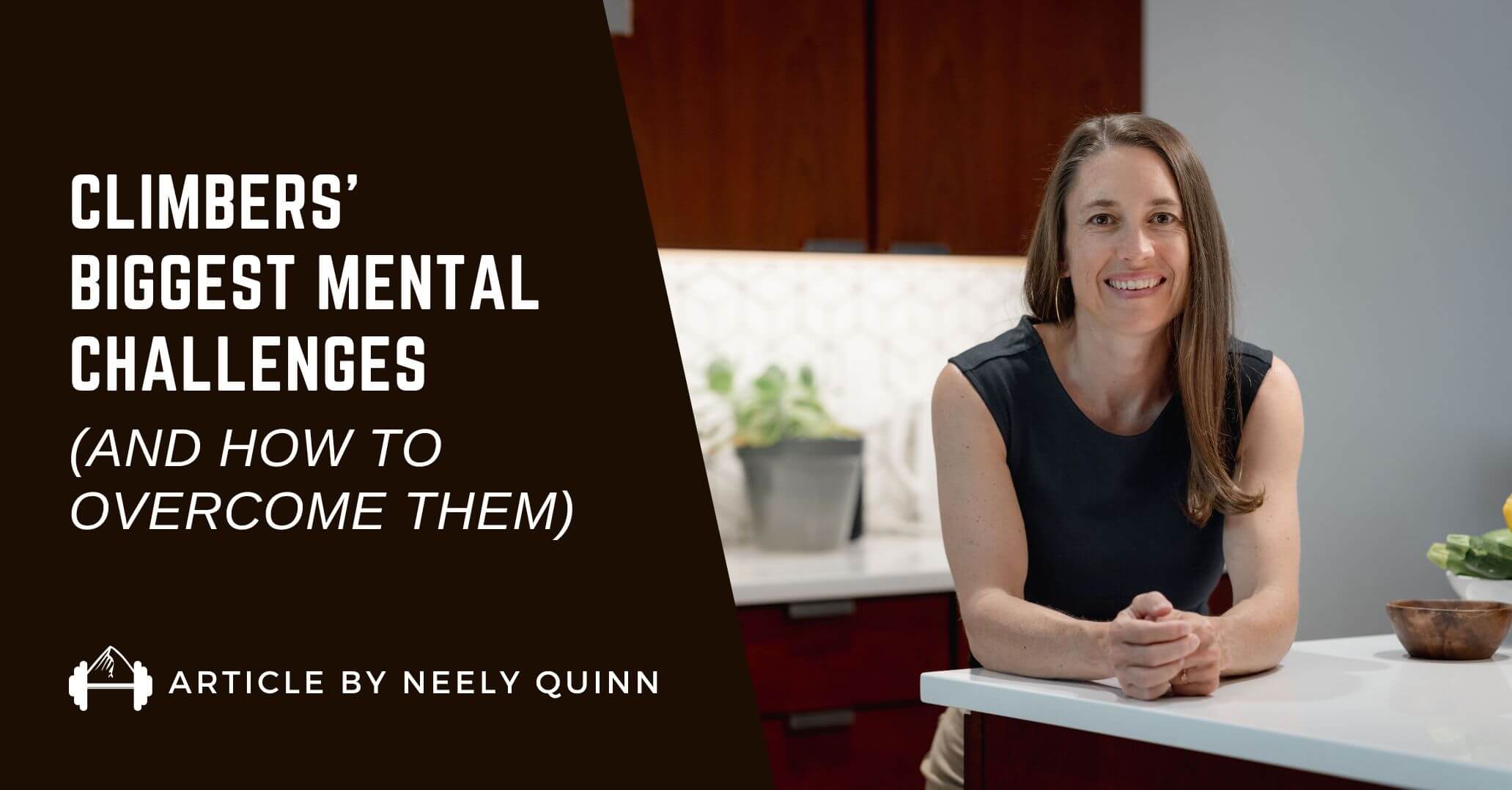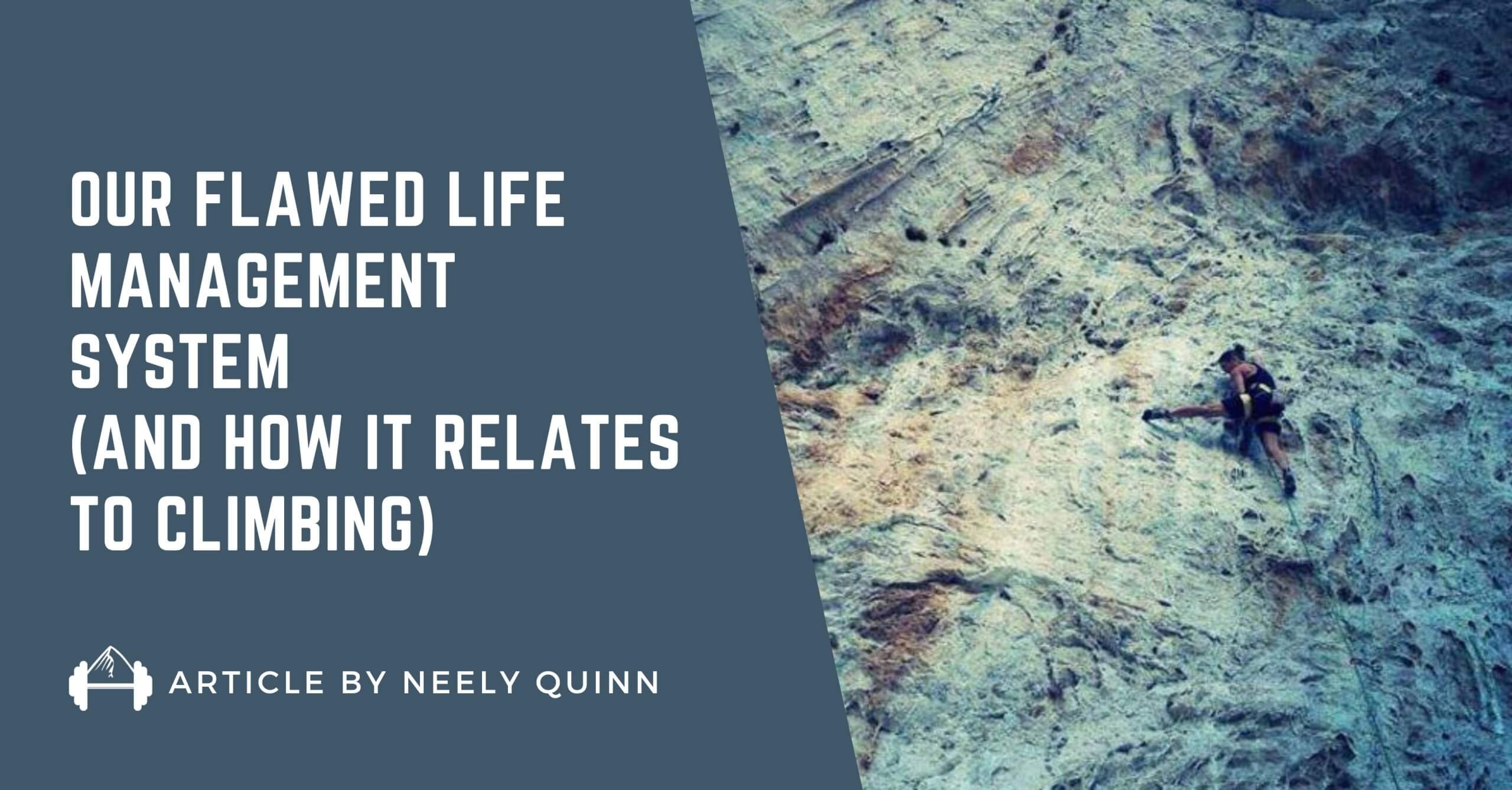It’s Neely here, and today I’m going to talk to you about how nutrition can affect climbers and how to improve your diet starting right now. If you feel like you need help in this department, I’m taking new clients right now for the first time in 4 months.
—> Learn More about Working with Me
Why Is Nutrition Important to Climbers?
The focus of TrainingBeta.com is training for climbing. However, in my opinion, nutrition has just as much to do with climbing hard as, say, fingerboarding or limit bouldering. We can train our asses off and climb until our fingers bleed, but if we’re not properly fueled, we’re not going to have the energy to finish that 4×4 or do that 3rd set of core exercises.
But how do you improve your diet to actually make a difference in your climbing? There’s so much information out there about nutrition, and a lot of it is contradictory to what you’ve heard before. The information overload can make people feel paralyzed and consequently change nothing about their diets.
In my experience as a nutritionist, there are some really solid nutrition guidelines that actually work for most of the climbers I’ve seen as clients. It just takes some willingness to change a few things, and a few days of diet logging here and there for a month or so.
Why would you change your diet?
Maybe you think your diet is spot on and you’re doing all that you can to optimize your performance. And maybe you’re right, in which case, that’s great news! But if you’re feeling anything in the list below, you might want to take a closer look at your eating habits:
Symptoms of Sub-Optimal Nutrition for Climbers
- Energy lulls at 10:30am or 3pm-ish most days
- Trouble sleeping
- Fatigued easily during climbing or training sessions
- Little to no progress in climbing despite training a lot
- Can’t seem to lose weight, despite dieting and exercising a lot
- Feeling shaky often and getting pumped out very easily
Those are the most common problems I see with my clients, and I’ve been really pleasantly surprised by how quickly things usually turn around for them in a matter of 2-4 weeks.
3 Diet Changes to Improve Your Climbing
These are 3 of the things I generally focus on with people to get solid improvements in their energy levels and climbing performance:
1. Protein Intake
It’s so important for climbers – or any athlete really – to be getting enough protein in the form of meat, poultry, seafood & fish, eggs, dairy, and/or powdered supplements if you’re vegetarian or vegan. We regularly break down our muscle fibers, and in order to repair that muscle and make it work even better next time, we have to eat enough protein.
I suggest between 20-25% of climbers’ diets be made up of protein. I’ve actually never had a client come into a first session at that level of protein, and I’ve honestly never seen a client not feel better after adding more protein to their diet.
2. Carb Intake
Carbohydrates are extremely important for climbers because they give you quick energy while climbing and training, but they also fill our glycogen stores in our muscles so we have plenty in the tank on long routes or boulders. The trouble is that most climbers don’t have a problem getting enough carbs in their diet: usually they’re eating too many.
People often eat unnecessary carbs, and that can put water weight and extra fat on their bodies. It also can cause blood sugar spikes, and therefore blood sugar bonks. I work with people to get them to around 35-45% carbs, depending on their weight goals and training demands. People are always surprised that they have more energy when they lower their carbs just a smidge, because we’re taught that more carbs equals more energy. Really, a good balance of carbs, protein, and fat is the important thing.
3. Timing of Eating
When you eat is almost as important as what you eat. If you go for 4-5 hours without eating before a climbing session, you’re going to feel tired because your blood sugar is low. If you skip breakfast, eat lunch, then go climb after a small snack after work, you might feel tired because a) your blood sugar is low and/or b) you haven’t had enough to eat that day to properly fuel a workout AND help you recover from your previous workouts.
The trick is to eat regularly throughout every day. Eat breakfast, lunch, snack, dinner, and maybe a snack after dinner if you’re truly hungry. Just because you’re eating more often doesn’t mean you’ll be eating more calories and gaining weight: you just have to put some thought into your caloric intake at each meal and snack. If you do this right, you’ll have more energy on climbing days in the gym and at the crag, and you won’t pump out and get shaky as easily. You’ll just feel stronger. Ideally you’ll be eating so regularly that your body will have energy to spare.
Other Factors to Consider
There’s a lot more that goes into optimizing a person’s diet and lifestyle to give them the best chance at getting stronger, sending projects, being able to climb longer, and being an overall healthy, fit person.
For instance…
- How many calories they’re eating every day
- How much they sleep
- How stressed they are at work
- Exactly what foods they should be eating, and how to cook them
- What they bring to the crag to eat
- How much caffeine they’re consuming
- If they’re training too much
- Whether or not they have any food sensitivities
- And so on…
Those are all the things I ask about in my sessions with nutrition clients. When I work with people, I generally see them over the course of at least one month because it takes time to notice trends, make changes, and then notice new trends. I like to check in with people weekly to see how they’re doing, and generally you can see differences within a week of trying something new.
I’m Accepting New Nutrition Clients
If you want help with your own diet, I’m taking 10 new clients this month from anywhere in the world. I work with people via Skype, and I work almost exclusively with climbers. I’d love to help you with whatever issues you think nutrition can solve.
This is a video I created to explain a little more about what it’s like to work with me as a nutritionist.
—> Learn More about Working with Me
Sam Elias’s Experience with Nutrition Coaching
I had the opportunity to work with sponsored climber, Sam Elias, on his nutrition, and here’s what he had to say about it (thanks, Sam!)…
 “Neely has really helped me dial in my nutrition. From working with her, I have been very happy with my diet, and have felt great. I’ve been able to train very hard and recover properly, as well as transition after the training into a performance period in which I’ve had some great successes.
“Neely has really helped me dial in my nutrition. From working with her, I have been very happy with my diet, and have felt great. I’ve been able to train very hard and recover properly, as well as transition after the training into a performance period in which I’ve had some great successes.
She helped me to understand the healthy ratios of macronutrients for myself, and when to change those ratios according to activity or rest days. She also helped to identify deficiencies, and eliminate some possible allergens and sources of unnecessary inflammation. I feel really lucky to know and work with her. I’m definitely healthier because if it.”
– Sam Elias, Pro Climber
I’ve seen pretty amazing things happen to people’s climbing and their overall health just by changing a few simple things about their diet. I really love this part of my job at TrainingBeta. If you have any questions about your diet or whether or not I’d be a good fit for you, please just email me at neely@trainingbeta.com and we’ll go from there. Otherwise, visit this page for more information.





Hi! Great post! What do you think about the 40-30-30 diet for climbing?
Hi Alejo – It’s generally what I recommend to my clients, or somewhere along those lines. So usually something like 40% carbs, 35% fat, 25% protein, but that’s only because most people have a really hard time getting up to 30% protein.